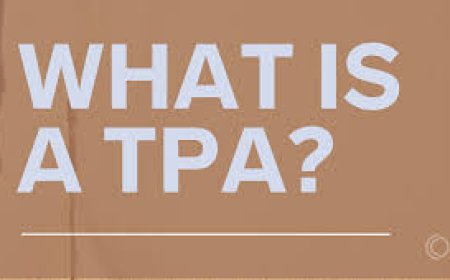The Influence of Feedback: How Capella Evaluations Guide Your Educational Path
Capella, Assessment

Capella Assessments are unlike traditional exams or quizzes. Rather than asking for memorization or simple recall, these assessments require students to apply their learning to real-life scenarios. For example, a student pursuing aMasters in Nursing might be tasked with creating a comprehensive patient care plan that includes diagnosis, treatment Capella Flexpath Assessment, and patient education. A business student, on the other hand, might design a marketing campaign for a new product.
Every assessment is built around competencies, which are specific, measurable skills or knowledge areas students must demonstrate to prove their readiness for the professional world. This could range from communication skills to technical expertise, leadership abilities, or analytical thinking.
Once submitted, each assessment is evaluated according to a competency rubric, which outlines the criteria for success at various levels: non-performance, basic, proficient, and distinguished. This transparent evaluation process provides clear expectations for what constitutes quality work and is essential for setting students up for future success.
The Importance of Feedback in Capella Assessments
Feedback is one of the most powerful learning tools in Capellas competency-based education model. Unlike traditional courses, where feedback might come after a grade is received, Capellas assessments prioritize constructive feedback before, during, and after the submission process. This process allows students to continuously improve, refine their work, and grow academically.
Timely and Constructive Feedback
After submitting an assessment, students receive personalized feedback from their nurs fpx 4045 assessment 3. This feedback is meant to guide students through the revision process, providing insights into areas of strength and improvement. Capellas instructors are focused on offering specific, actionable feedback rather than general comments.
For instance, if a student in a Doctor of Education program submits a curriculum plan for review, the instructor might point out areas where the alignment with modern educational theories could be stronger or where the differentiation for diverse learning styles could be improved. This feedback is intended to highlight gaps and encourage students to revise their work to demonstrate a deeper understanding of the content.
Feedback That Encourages Growth
What sets Capellas feedback apart is that it is designed to encourage growth and development, rather than merely assigning a grade. Instructors not only tell you what you did right or wrong, but they also provide specific suggestions on how to improve. This focus on improvement rather than simply completion makes Capellas assessments a more dynamic and effective learning experience.
How to Use Feedback Effectively
Students must understand that feedback is not just a means of knowing whether they passed or failed an assignment. Instead, it is an opportunity to learn and grow. Here are strategies for effectively using feedback to improve your performance in future assessments:
1. Read Feedback Carefully
Take time to thoroughly review the feedback you receive on your assessments. Pay attention to both positive comments and areas for improvement. Avoid rushing through the feedback just to move on to the next task. Understanding why a section of your work didnt meet expectations is crucial for improving in the future.
2. Implement the Suggestions
Dont just read feedbackapply it. If your instructor suggests more detailed analysis, greater clarity in your argument, or a more thorough explanation of your sources, take those suggestions nurs fpx 4025 assessment 1. Revisions based on feedback are not just a chance to improve grades but an opportunity to deepen your understanding and skills.
3. Ask for Clarification
If the feedback is unclear, dont hesitate to reach out to your instructor for further explanation. Capellas instructors are available to help guide you through the feedback, ensuring you understand how to apply it to improve future assessments. Clarity is key to making the most out of feedback.
4. Reflect on Your Growth
After revising your assessments and submitting them again, reflect on how youve improved. Each iteration of feedback and revision helps build your competency in the subject. This reflection allows you to see how much youve learned, how youve grown, and where your strengths lie.
The Long-Term Value of Feedback in Your Career
The value of Capella Assessments and their accompanying feedback goes beyond gradesit helps prepare students for the workforce. In professional environments, feedback is an ongoing part of personal and career development. The ability to receive constructive criticism, act upon it, and continuously improve is a critical skill in any field.
Capellas feedback system mirrors this real-world dynamic, fostering a mindset that values continuous learning and self-improvement. By learning how to use feedback effectively during your academic journey, youre setting yourself up for long-term success in your career.
Conclusion
Capella Assessments are a core part of the competency-based education model, designed to ensure that students not only complete assignments but also master the competencies necessary for success in their professional fields. Feedback is an integral part of this process, providing students with the tools and insights needed to refine their work, deepen their understanding, and enhance their skills.
By embracing the feedback process and viewing it as a tool for growth rather than a judgment of nurs fpx 4055 assessment 2, students can maximize their learning potential and build a strong foundation for their future careers. Capella's approach to assessments and feedback ensures that students are not just prepared for exams but are ready for the challenges and opportunities they will face in their professional lives.
































